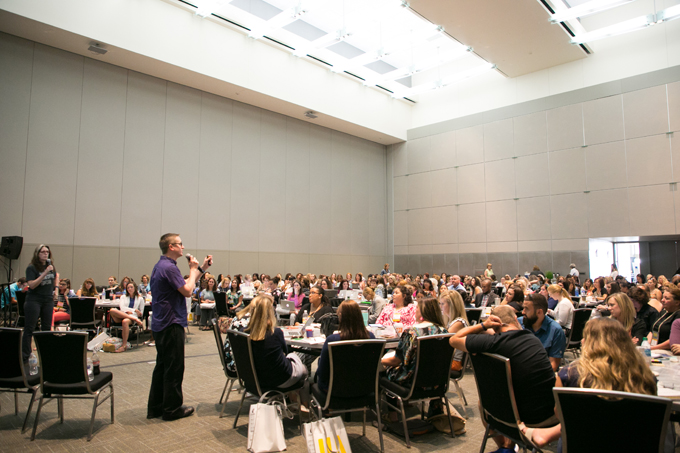 ILA’s annual conference is a great forum to share your research and findings, network with prominent individuals in your field, and put your finger on the pulse of what’s happening in literacy education. Because of this, our proposal submission is a highly competitive process, with only an estimated 30% of submissions accepted each year.
ILA’s annual conference is a great forum to share your research and findings, network with prominent individuals in your field, and put your finger on the pulse of what’s happening in literacy education. Because of this, our proposal submission is a highly competitive process, with only an estimated 30% of submissions accepted each year.
That kind of competition puts means that those looking to get on the peer-reviewed program have to step up their proposal game. After all, the proposal is the one shot you have to “sell” your idea and secure your place in the ILA 2019 Conference program.
Here are some tips for putting your best proposal forward:
Educate yourself on what reviewers are looking for. Carefully review the submission guidelines and five-point scoring rubric and be aware of expectations.
Ground your proposal in research. Reviewers are looking for proof that your proposal is powered by research and evidence-based practice. Include references and citations where needed.
Show the applicability. Don’t just summarize your research; emphasize its larger significance. What are the implications of your findings? How might this be implemented into practice? What will attendees know by the end of the session? Clearly state the takeaways.
Be fresh but relevant. While you want to contribute to what’s trending, you also want to offer fresh perspective and insights. Choose a topic that’s timely, relevant, and important to the field, but still brings a unique angle to the conversation. This will help your proposal stand out.
Punch up your title. Your title is often the first (and sometimes only) thing attendees will look for when choosing sessions. Give your session a provocative title that piques the reader’s interest while accurately describing the session. For example, “‘That Never Happens at Home!’ Cultivating Collaboration Between Educators and Families of Students With Special Needs” accomplishes both objectives.
Don’t bury the lead. A well-written session description has two goals: entice the reviewers into accepting your submission and get attendees into the seats. A person should be able to skim the description and feel confident about what will be covered. The fundamental “why” should be clearly articulated.
Pitch yourself. Generally speaking, proposals that make reviewers want to attend the session are scored more favorably. Imagine your session is on the schedule, but the presenter is someone else. You’ve decided to go, and you really want your colleagues to join. How would you convince them to go?
Set the tone. Delivery matters. Couch your content in a way that conveys your enthusiasm for the topic without compromising formality. Avoid specialized jargon and make sure your prose is clear, straightforward, and engaging.
Choose your format carefully. As an educator, you’re accustomed to offering students differentiated learning opportunities. Submissions must be made in one of five session types: preconference institute, hands-on workshop, session, panel, and poster presentation. Take a thoughtful look at the format descriptions and think about how your topic and findings might most effectively be shared with your audience. This also applies to picking a category, strand, and target audience for your session.
Be concise. A successful proposal will clearly and succinctly answer the basic questions of Who? What? Where? Why? How? Active words are key.
Proofread, edit, and double-check. Mechanical errors can be distracting and may lead reviewers to question your commitment or competence. The presenter and all copresenters should take time to screen the proposal for spelling, grammar, or punctuation errors. Afterward, ask colleagues to proofread, not only for errors but also for confusing statements. Give them enough background about the conference, the expected audience, and your topic, so that they can deliver actionable feedback.
Alina O’Donnell is the communications strategist at ILA and the editor of Literacy Daily.